Today we will talk about the book by Eric Jorgensen, The Almanack of Naval Ravikant. Getting rich is not just about luck; happiness is not just a trait we are born with. These aspirations may seem out of reach, but building wealth and being happy are skills we can learn.
So what are these skills, and how do we know them? What are the principles that should guide our efforts? What does progress look like? Naval Ravikant is an entrepreneur, philosopher, and investor who has captivated the world with his principles for building wealth and creating long-term happiness .
The Almanack of Naval Ravikant is a collection of the Naval’s wisdom and experience from the last ten years. This isn’t a how-to book or a step-by-step scheme. Instead, through Naval’s own words, you will learn how to walk your unique path toward a happier, healthier life.
We will discuss this summary in two parts; we will first know, in detail, about wealth. And after that, we will understand happiness.
1. Wealth
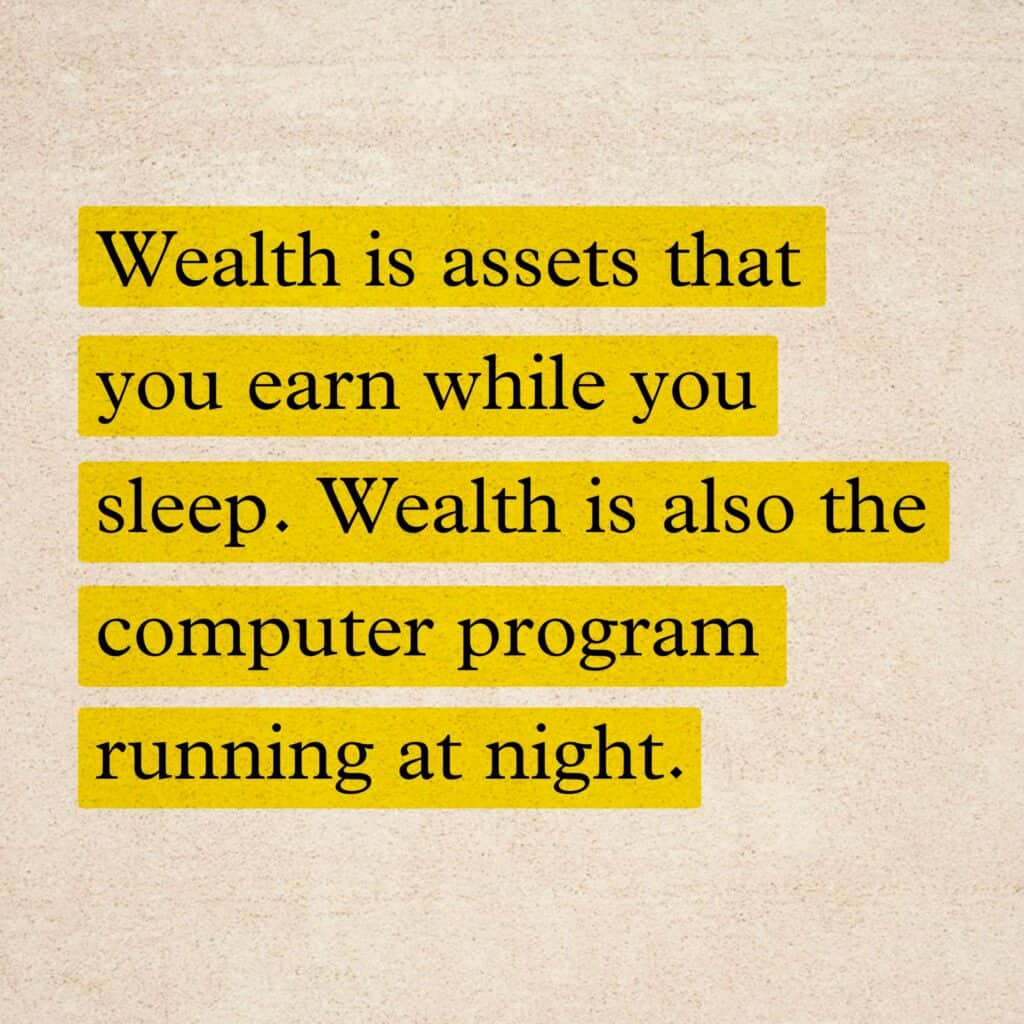
What is the difference between wealth and money? Money is how we transfer wealth. Money is social credit. Wealth is the thing we all want. Wealth is assets that you earn while you sleep. Wealth is also the computer program running at night. Wealth is even money in the bank. So the definition of wealth is businesses and assets that you earn while you sleep.
Find and build specific knowledge. Specific knowledge cannot be taught, but it can be learned. When the Naval talks about particular knowledge, figure out what you were doing as a kid or a teenager almost effortlessly. Something you didn’t even consider a skill, but people around you noticed.
Your mother or your friend growing up would know about your specific knowledge. Detailed knowledge combines unique traits in your DNA, upbringing, and response. It is baked into your personality and your identity .
The first person to point out the specific knowledge of Nthe aval was her mother. It was the time when Naval was 16. He was telling his friend that he would be an astrophysicist and her mother said, “No, you are going into business” Naval said, “What my mom is saying I am going to be in business?”
Her mom knew exactly what she was talking about because she noticed her child closely. Specific knowledge is found much more by pursuing your inner telling, genuine curiosity, and passion. It is not like this to go in a trendy career or whatever business investors say; go in that.
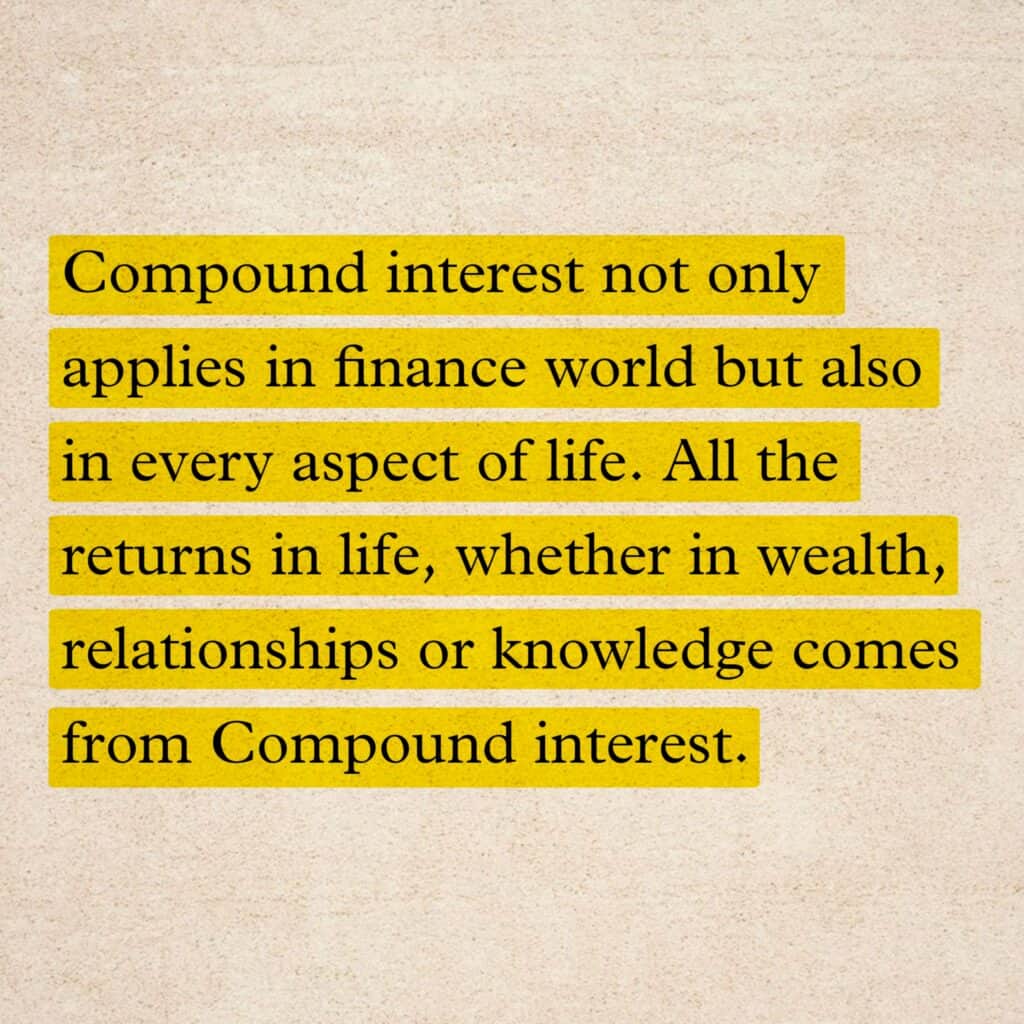
If you have ever invested your money or read something about finance, you must have come across this word- “Compounding.” Compound interest not only applies in the finance world but also in every aspect of life. All the returns in life, whether in wealth, relationships, or knowledge, come from Compound interest.
For proof of this, you can look at some of the top roles in society, like why someone is a CEO of a public company or managing billions of dollars. The answer is that people trust them. They are charged because the relationships they have built in their work have compounded means 10x or 20x .
Take on Accountability. To get rich, you will need leverage. Leverage can be labor, can be capital or it can be code, or media. But most of these, like labor and capital, people have to give to you. So to get these things, to build trust with people, here comes the concept of accountability. So accountability is a double-edged thing.
You can take the credit when things go well, but if things do not go well, you must take all the failures in your name. This means you will face all the negative. We are still socially hard-wired to not fail in public under our names—the people who can fail in public gain a lot of power.
People should take a lot more accountability than they do because, in modern society, the downside risk is not that large. Even personal bankruptcy gets clean in good ecosystems.
Build or buy equity in a Business. Why is owning equity in a business essential to becoming rich?? It’s ownership versus wage work. If you are paid for renting out your time, even if you are a lawyer and doctor, you will make some money, but you will need more money to make the money that gives you financial freedom.
You will not have passive income, and you will be unable to earn while sleeping. Without ownership, your inputs are very closely tied to your outputs. In almost any salary job, even with a lot of salaries, like a lawyer or a doctor, you are still putting in the hours and every hour you get paid.
If you look at even doctors who get rich, I mean rich because they open a business. They have started a private practice. Or they build some medical device or intellectual property .
Find a position of leverage. We live in an age of infinite power, and if you follow your genuine curiosity, you can earn a lot of money. Following your natural intellectual curiosity is a better foundation for a career than following whatever is making money. You want to know how to do something other people need to learn at a time when those skills are in demand .
Think about what product or service society wants but still needs to learn how to get, just like Steve Jobs saw that people need smartphones but don’t know how to make them. You continue developing your skill and wait for the moment when something new emerges in the world, the skills they need; you must have it.
You build your brand on Twitter, YouTube, and Instagram. When it’s time to move on, the opportunity you can do so with- leverage the maximum leverage possible.
There are three broad classes of leverage:
- The first form of leverage is labor- other humans working for you. It’s the oldest form of leverage and could be better in the modern world. However, managing other people is incredibly messy; it requires tremendous leadership skills.
- The second leverage, money, is suitable as a form of leverage. It means every time you make a decision, you multiply it with cash. Therefore, managing money is more straightforward than managing people.
- And the final form of leverage is – the most democratic form. It is: “products with no marginal cost of replication.” This includes books, media, movies, and code. A developer made an app, and now it’s running forever. A YouTuber made a video, and now millions of people are watching it.
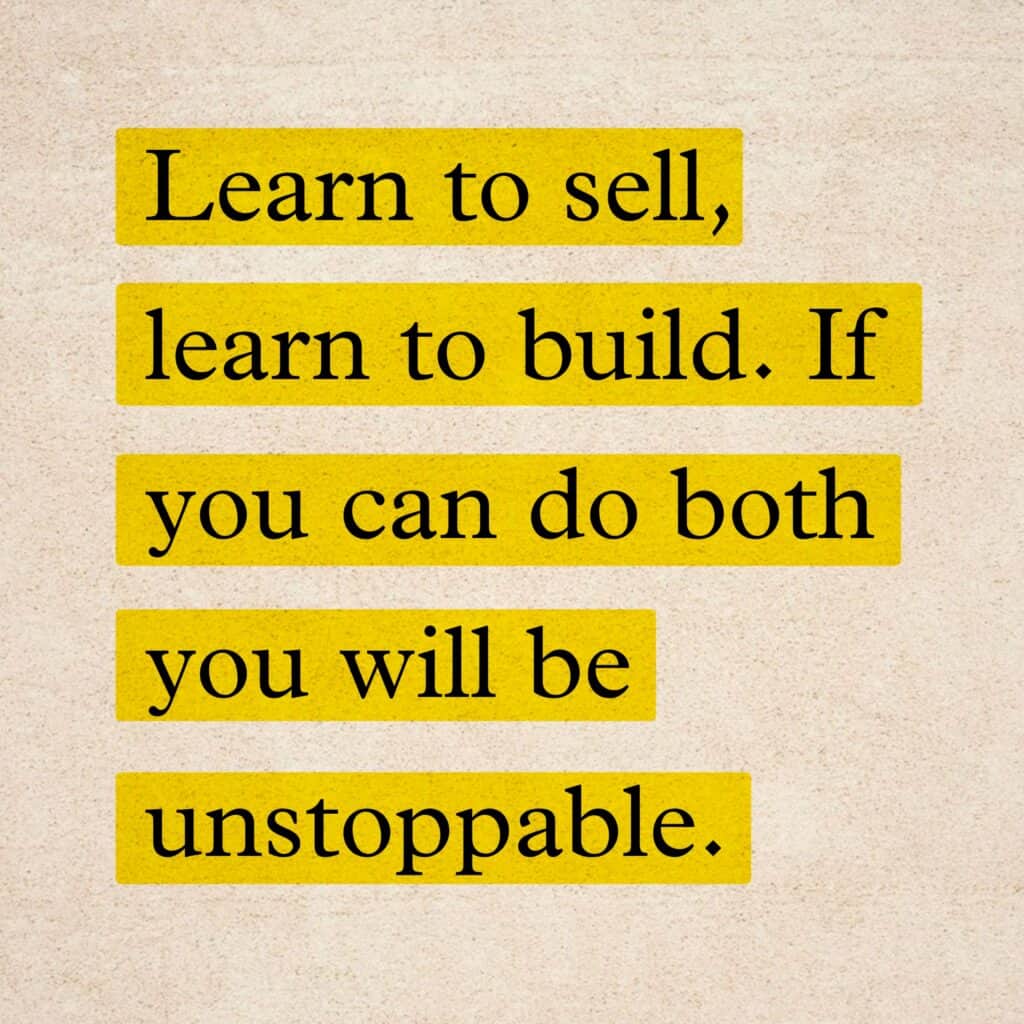
Learn to sell, learn to build. If you can do both, you will be unstoppable. These are two extensive categories. One is making the product. This is hard, and it’s multivariate. It can include design; it can include development, it can consist of manufacturing. In every industry, there is a different definition of the builder. In the tech industry, it’s the CTO; it’s the programmer.
In the laundry business, it could be the person who is building the laundry service. The other category is sales. Selling is a necessary term. Selling doesn’t necessarily mean just selling to individual customers, but it can be marketing and communication. It’s like a big umbrella .
There are two fundamental games in life that people play. One is the money game. People play money games because money will not solve all of their problems, but it will solve all of your money problems. But at the same time, many of them, deep down, believe they cannot make money. They don’t want any wealth creation to happen. So they attack the whole enterprise by saying, “Well, making money is evil. You shouldn’t do it”.
But they are playing the other game which is the status game. Status is a zero-sum game, which means no one will benefit from it. It’s an ancient game we have been playing since the times of the forests. Who is number one? Who is number two? Who is number three?
And for number three to move to number two, number two has to move out of the slot. So status is a zero-sum game. The problem is to win at a status game; you have to put somebody else down.
Find work that feels like play. We lived like hunters, and there we all worked for ourselves. Only at the beginning of agriculture did we start moving toward the status game.
The industrial revolution and factories made us extremely hierarchical because one individual couldn’t necessarily run their factory. But now, because of the Internet, we are returning to an age where more and more people can work for themselves .
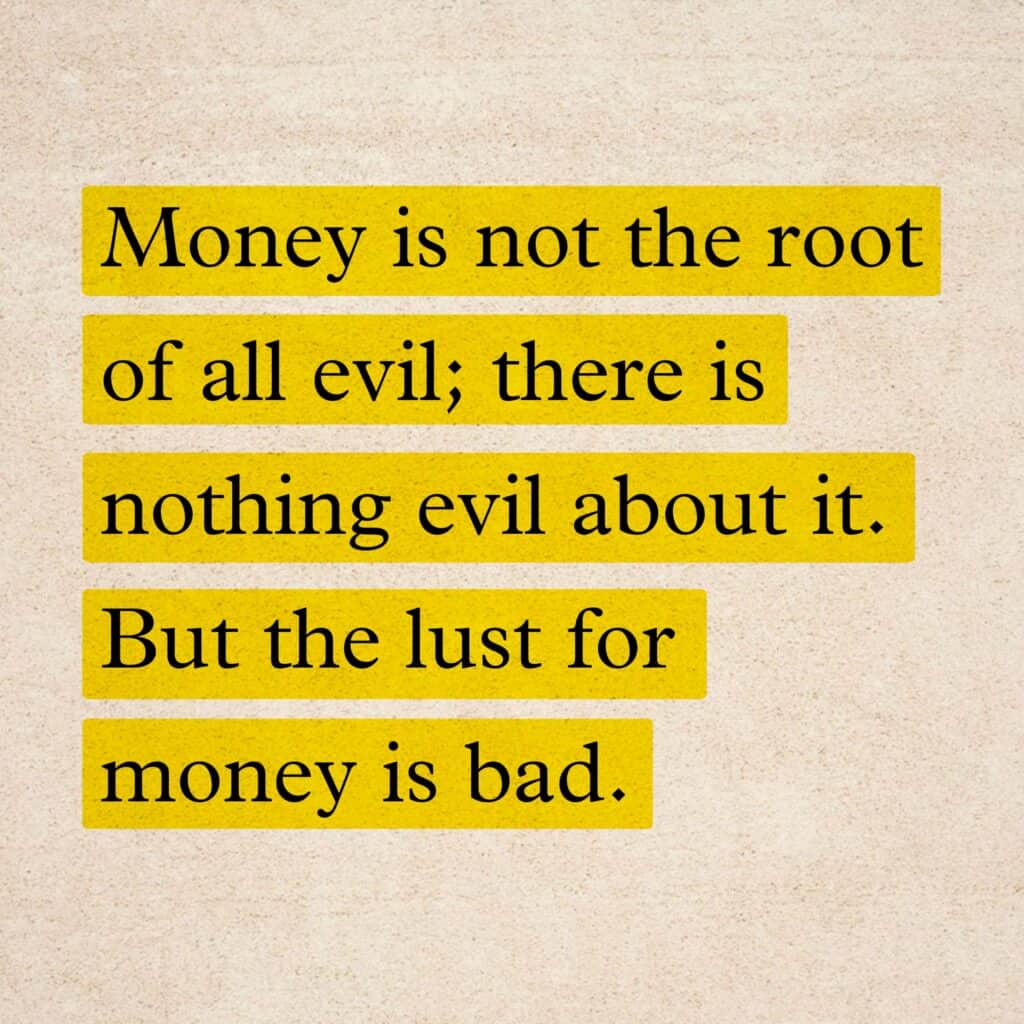
Your love for money. Money is not the root of all evil; there is nothing evil. But the lust for money could be better. The desire for money is okay in a social sense. However, it could be better for you. Lusting for money is terrible because this is a never-ending love. It will always occupy your mind.
If you love money and you make it, there is never enough. There is always more because the desire is turned on and doesn’t turn off at some number. As you make money, you want even more and become fearful that you don’t lose that money. The best way to stay away from this constant love of money is not to upgrade your lifestyle as you make money .
2. Happiness
We are constantly trapped in thinking, “I need this” or “I need that.” Happiness is a state in which nothing is missing. This means you have all the things which you want. When nothing is missing from you, then your mind shuts down and stops making regrets about the past, and stops making a plan for the future.
People mistakenly believe happiness is just about positive thoughts and positive actions. But this is not the case. Happiness is not about positive thoughts. It is not about negative thoughts. It’s about the absence of desires, especially the lack of passion for external things.
Happiness requires presence. At any given time, when you are walking down the streets, a tiny percentage of your brain is focused on the present. The rest is planning the future or regretting the past. This keeps you from having an authentic experience.
It keeps you from seeing the beauty in everything and being grateful for where you are. You can destroy your happiness if you spend all your time living in delusions of the future.
Today we bought a new car. Now I’m waiting for the new vehicle to arrive. Currently, every night, we will be reading about that car at every place. Why are we doing all this? Because it’s a silly car. It’s not going to change my life much at all. We know the instant the vehicle arrives, we won’t care about it anymore. The thing is, we are addicted to the external thing.
And we have started thinking that external things will give us happiness, but it’s not that way. “Oh, I will be happy when I get that thing,” whatever it is. That is the big mistake we all make all day long. All man’s troubles arise because he cannot sit quietly in a room.
If you could sit for 30 minutes and be happy, you would be successful. That is a very powerful place, but only some of us get there. If you are peaceful inside and out, because of it, you will get happy .
Life isn’t that hard. We made it hard. For the naval, jealousy was a tough emotion to overcome. It’s a toxic emotion because you are no better off with jealousy. And nothing happens to the person because of whom you were feeling jealous. He is still successful and good-looking.
3. Habit
Happiness is a skill, just like nutrition is a skill, dieting is a skill, working out is a skill, making money is a skill, and having good relationships is a skill. These are not things you are born with. So how does someone build the skill of happiness? You can build good habits, which can help you provide happiness. Not eating sugar can stabilize your mood.
Not drinking alcohol can put your spirit more stable. And yes, playing video games will make you happier in the short run- but it is ruining your happiness in the long run. The main thing is that you have to change your thoughtless bad habits with good ones. You are a combination of your habits and the people you spend the most time with .
Naval says that he has a friend who is a Persian guy named Bezhad. He loves life a lot and does not talk to anybody who is unhappy. If you ask Behzad what’s his secret? He will look up and say, “stop asking why and start saying wow.” The world is such a fantastic place. We, humans, take everything for granted.
Like what you and I are doing right now, we all are at our homes, sitting indoors, and you are reading this summary. We should be two monkeys sitting in the jungle, watching the sun go down. If you live in the present moment, you can see how many gifts we have. That’s all we need to do.
Here Naval tells his habits which helped him to be happy. The first one is meditation. The purpose of mediation is to understand how the mind works. Meditation means just being very aware in every moment. This means if you are walking, then focus on walking. Naval also says that working out every day made him happier. If you have peace of body, it’s easier to have Peace of Mind.
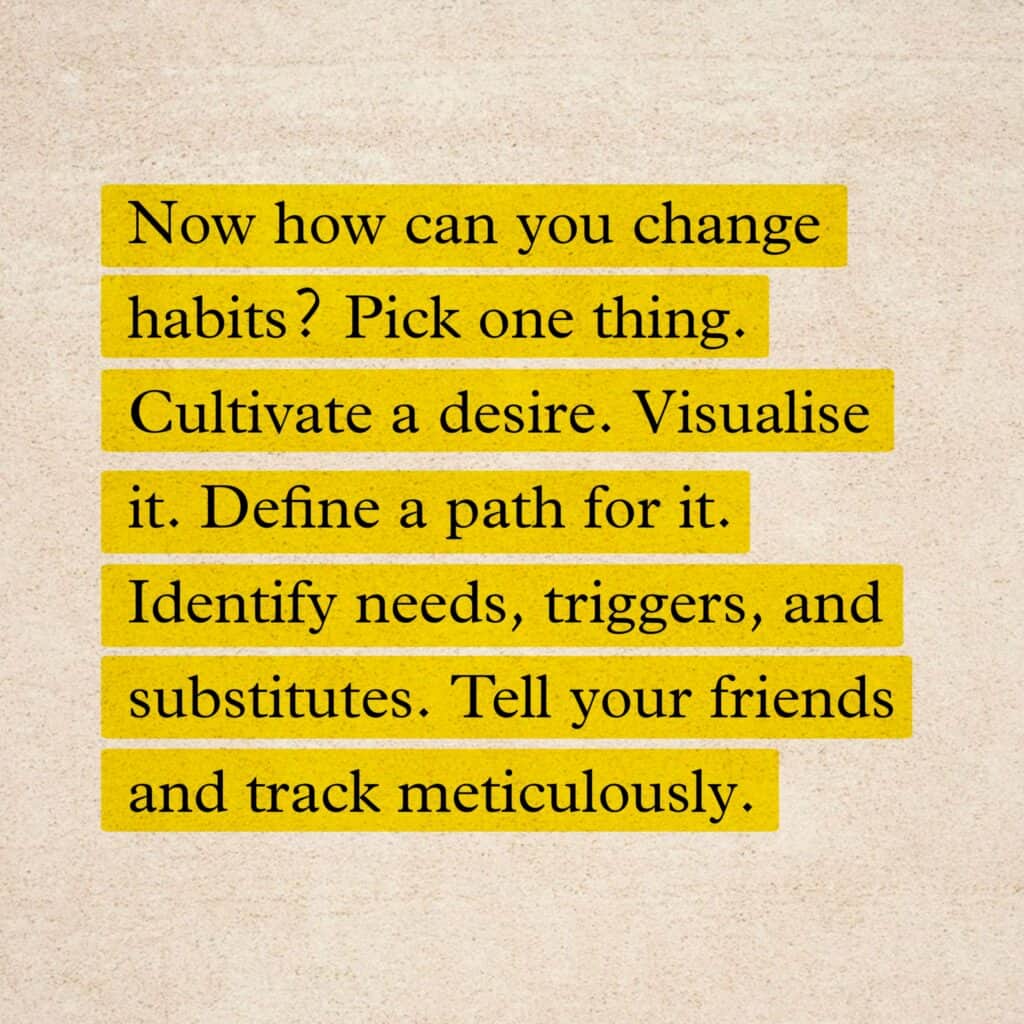
Now how can you change habits? Pick one thing. Cultivate a desire. Visualize it. Define a path for it. Identify needs, triggers, and substitutes. Tell your friends and track meticulously .
In any situation in life, you always have three choices: you can change it, you can accept it, or you can leave it. If you want to change it, then it is a desire. It will cause you suffering until you successfully change it.
For example, if a person is poor, he will desire to become rich, and until he changes his situation, he will suffer . The option which could be a better option is sitting around wishing you would change the situation but not changing it. Hoping you can leave it but not leave it, not accept it. The phrase naval probably used the most to himself in his head is just one word “accept.”
So does acceptance look like? It’s to be okay whatever the outcome is of what you did. We don’t always get what we want, but sometimes what is happening is for the best. As it is written in the Gita, whatever is happening is happening for good. Achieving acceptance is very difficult, so here naval shares some hacks that helped him accept situations .
The first hack is stepping back means when this kind of situation came, what happened after that? Last time you had a business failure. Last time you had a health issue. What happened? You can see the growth and improvement that came from that situation.
He also shares another hack. Whenever a lousy situation comes to him, he asks his mind what the positive of this situation is. There is almost always something positive in every case. Even if you can’t come up with something positive, you can say, Well, the universe will teach me something new. I have to listen to it quietly.
Why is meditation so powerful? Your breath is one of the few places where your automatic nervous system meets your voluntary nervous system. It’s involuntary, but you can also control it. Meditation is intermittent fasting for the mind . Too much sugar leads to a heavy body, and too many distractions lead to a sober mind.
When we spend time in an undistracted mind, then this takes us from being mentally fat to fit. Here Naval gives a life hack: When in bed, meditate. Either you will have a deep meditation or fall asleep. The benefit is from both of the ways.
I don’t believe in specific goals. Scott Adams said, “set up systems, not goals.” Use your judgment to determine what environments you can thrive in, and then create an environment around you so you are statistically likely to succeed.
Naval says he will not be the most successful person on the planet, nor does he want to be. He wants to be the most successful version of himself. He wants to live so that if his life played out 1000 times, he would be successful 999 times. He’s not a billionaire, but he does pretty well each time. He didn’t get success in every aspect of life, but he set up systems, so he’s failed in very few places.
When Naval was younger, he valued freedom. Freedom was one of his core values, and it still is. It’s probably one of his top 3 values, but it’s now a different definition of freedom. His old definition was “freedom to.” Freedom to do anything he wants. Freedom to do whatever he feels like, whenever he feels like.
Now the freedom he is looking for is internal. It’s “freedom from.” Freedom from the reaction. Freedom from being angry. Freedom from being sad. He is looking for “freedom from,” whereas before, he was looking for “freedom to.”
4. Freedom from expectations.
If you hurt others because they expect of you, that’s their problem. If they have an agreement with you, then it’s your problem. But, what they expect of you that’s entirely their problem. It has nothing to do with you. They are going to have lots of expectations of life. The sooner you can dash their expectations, the better. Value your time. It is all you have. It is more important than your money. It’s more important than your friends. It is more important than anything.
Your time is all you have. Do not waste your time. This doesn’t mean you can’t relax. If you do what you want, it is not a waste of your time. But if you are not spending time doing what you want, and you are not earning and learning, then what the heck are you doing? Don’t spend your time making other people happy .
Freedom from Anger.
What is anger? Anger is a loss of control over the situation. Anger is a contract you make with yourself to be in physical and mental pain until reality changes .
Freedom from uncontrolled thinking.
A big habit Naval is working on is trying to turn off his “monkey mind.” When we are children, we are in blank states. We live very much in the present. We live in what the Naval would call the “real world.” Puberty is the onset of desires. You start thinking a lot, building an identity and also an ego. If you walk down the street and there are a thousand people, all thousand are talking to themselves at any given point .
They are constantly judging everything they see. They are living in fantasy worlds of what’s going to happen tomorrow. That can be good when you do long-range planning. It can be good when you solve problems. Naval thinks it’s not good for your happiness. To Naval, the mind should be a servant and a tool, not a master. His monkey mind should not control and drive him 24/7.
The meaning of life. It’s the big question: what is the meaning and purpose of life? Because it’s a big question, so Naval gave two answers. Answer one: It’s personal. You have to find your meaning. Any piece of wisdom anybody else gives you, whether it’s Buddha or Naval, will sound like nonsense. That’s why you must find it yourself, so the answer is not necessary; the question is important. You have to sit there and dig with a question.
When you find a solution you are happy with, it will be related to your life. Answer two: There is no meaning to life. There is no purpose to life. Osho said, “It’s like writing on water or building houses of sand.” Anything you will do will disappear, just like the human race will fade, and the planet will disappear. Even the group that colonizes Mars will disappear. No one will remember your past to set several generations, whether you are an artist, a poet, or anyone else. There is no meaning.
The Almanack of Naval Ravikant Book Review
The Almanack of Naval Ravikant, curated by Eric Jorgenson, is an insightful and thought-provoking collection of wisdom from Naval Ravikant, the influential entrepreneur, investor, and philosopher. As a reader, I found this book to be a treasure trove of knowledge, offering valuable lessons on topics such as wealth, happiness, and personal growth.
The book is structured as a compilation of Naval’s tweets, podcast interviews, and essays, which Jorgenson has skillfully organized into coherent themes. This format makes it easy to digest the content and allows readers to explore specific topics of interest.
One of the most compelling aspects of The Almanack of Naval Ravikant is the emphasis on developing a deep understanding of oneself and cultivating a growth mindset. Naval’s insights on the importance of self-education, mental clarity, and emotional intelligence are truly inspiring and have left a lasting impact on my own personal development journey.
The book also delves into the realm of wealth creation, providing practical advice on investing, entrepreneurship, and decision-making. Naval’s unique perspectives on these topics are both refreshing and valuable for anyone seeking to create financial freedom.
Our summaries are also available on all Podcast platforms, named “Kitabein,” which recently won India’s best educational podcast award.
Contents

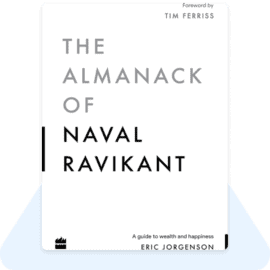
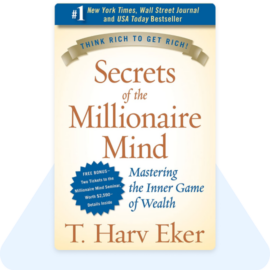


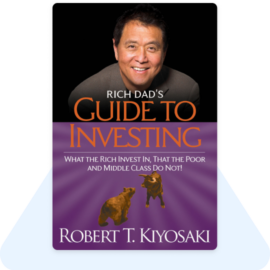
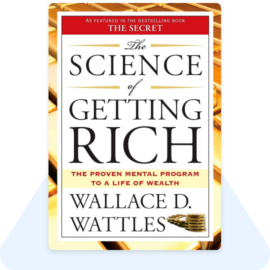
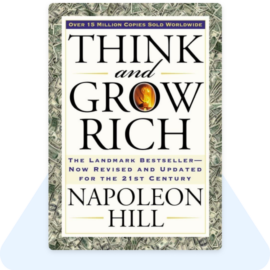
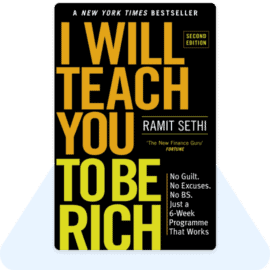

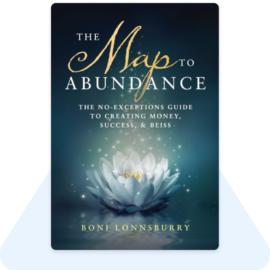
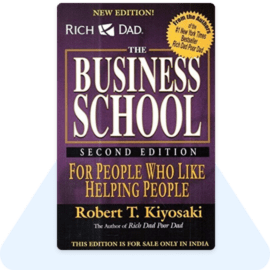
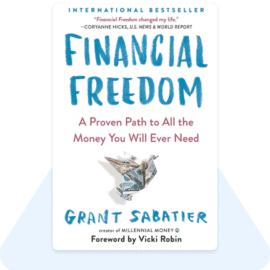
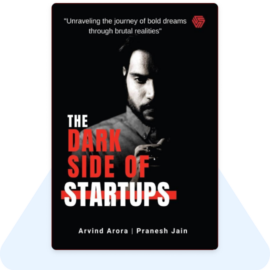
Thanks 2 nd day completed
My old comment is not visible.
Day 2, The Almanack, by Naval Ravikant.
Everything important in this world like health wealth, habits and relationships follow the compound interest rule. A little investment daily makes a big difference.
Thank you Amit sir and RBC.